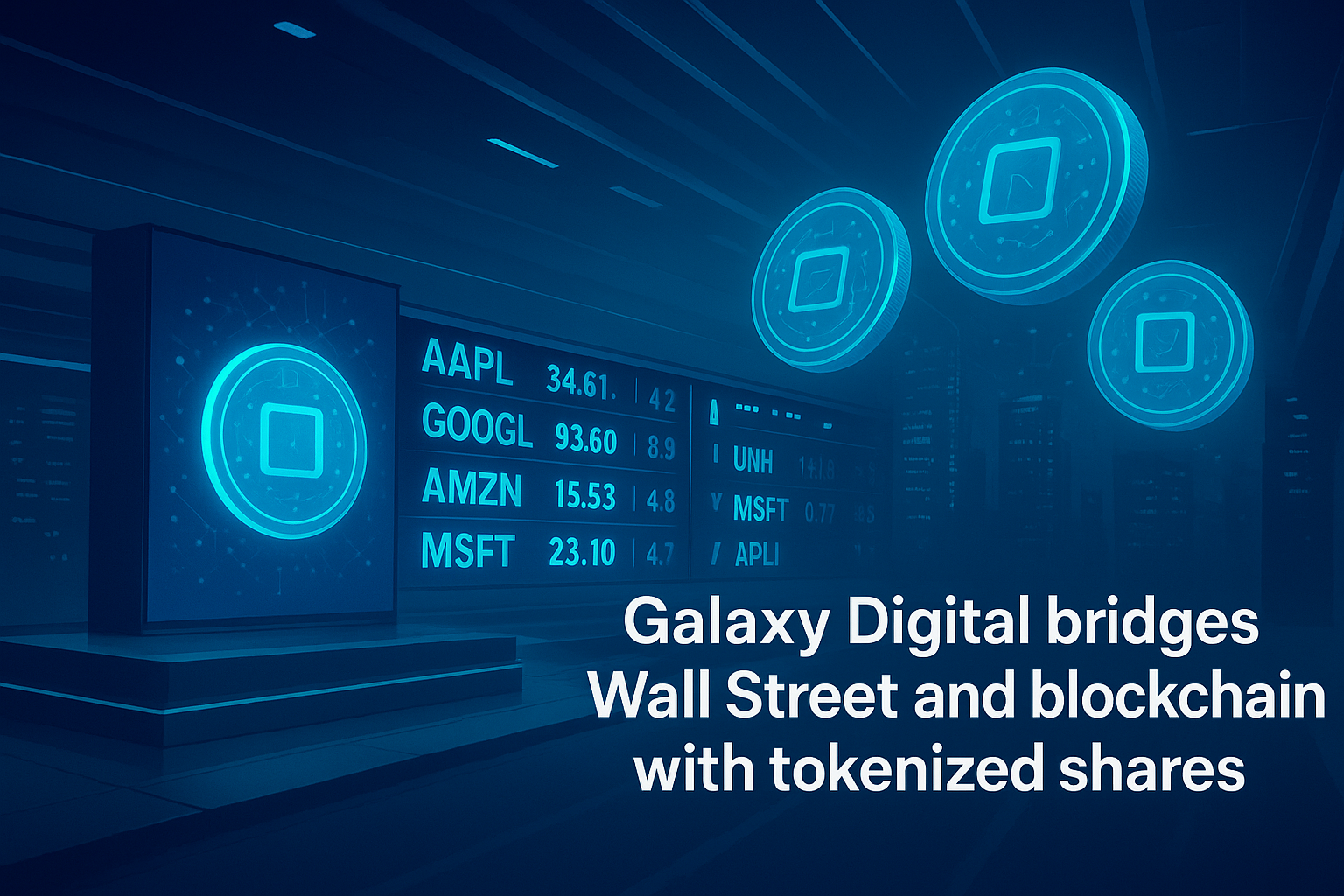In the rapidly evolving world of finance, 2025 has brought a defining milestone: Galaxy Digital has become the first U.S. company to tokenize its publicly traded shares, enabling investors to convert traditional equity into blockchain-based tokens. This development, powered by Superstate, represents a historic convergence of traditional securities and blockchain technology, paving the way for a new era of accessible, efficient, and borderless trading.
What Exactly Happened?
Galaxy Digital, the global investment firm specializing in digital assets and blockchain technology, announced that its shareholders—primarily institutional investors—now have the option to transform their stock holdings into tokenized shares. These tokens are not synthetic products or derivatives but legally equivalent representations of the underlying equity. In other words, they carry the same rights, protections, and value as the company’s traditional stock, but with the added benefits of blockchain infrastructure.
Why Tokenization Matters
For decades, equity markets have operated on legacy systems that rely on slow settlement times (T+2 or longer), costly intermediaries, and limited trading hours. Blockchain-based tokenization challenges this paradigm by offering:
-
24/7 Global Trading: Tokenized shares can be bought, sold, and transferred around the clock, breaking free from the time zones and business hours of traditional exchanges.
-
Near-Instant Settlement: Instead of waiting days for settlement, blockchain transactions finalize within minutes—or even seconds—reducing counterparty risk.
-
Fractional Ownership: Tokenization makes it feasible for investors to hold fractions of a share, opening opportunities to a broader base of participants.
-
Cross-Border Accessibility: Investors across the globe can gain access without the frictions of custodians, brokers, or clearing houses.
Galaxy Digital’s First-Mover Advantage
By taking the leap, Galaxy Digital is not only aligning with its mission to drive blockchain adoption but also setting the precedent for other U.S. companies. If successful, this could encourage blue-chip corporations, asset managers, and financial institutions to follow suit, accelerating the tokenization of trillions of dollars’ worth of real-world assets (RWAs).
This is particularly notable in light of the growing institutional appetite for digital assets. With ETFs, tokenized funds, and digital bonds already on the rise, Galaxy’s move gives Wall Street and the crypto ecosystem a new blueprint: securities that can live natively on blockchain networks without losing their legal status.
The Bigger Picture: Tokenization of Everything
Tokenizing equities is only the beginning. Analysts predict that by the end of this decade, real estate, private equity, commodities, and even government bonds will increasingly exist as tokenized versions of themselves. According to some estimates, the tokenized assets market could reach tens of trillions of dollars globally by 2030.
Galaxy Digital’s tokenized shares are not just a technical experiment—they are a glimpse into the future of finance. By merging regulatory compliance, legal recognition, and blockchain’s efficiency, this model may redefine how capital markets operate.
What Galaxy Digital has achieved is more than a headline; it’s a paradigm shift. By bridging Wall Street and blockchain, the company is turning the once-theoretical promise of tokenization into a tangible, regulated product. For investors, regulators, and innovators alike, this could mark the moment when the line between traditional securities and digital assets began to blur for good.




